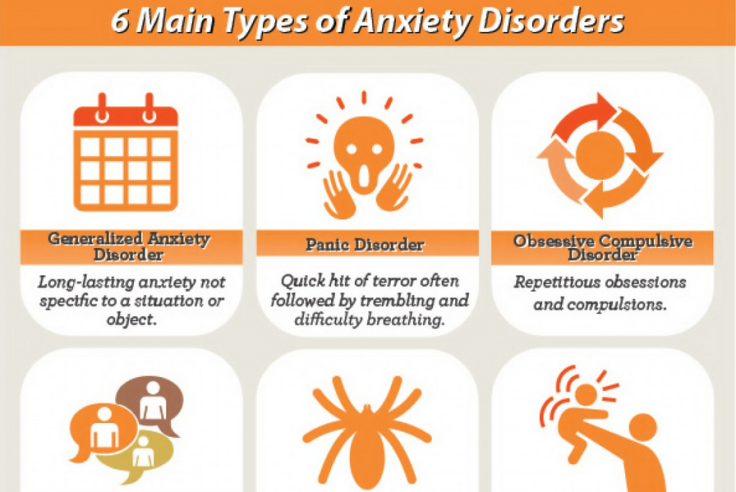What It Means To Have An Anxiety Disorder And 7 Ways To Cope

As someone who suffers from an anxiety disorder, I know what it feels like to be restricted by overwhelming feelings I often can’t make sense of. I’ve experienced the heart-clenching fear, the paralyzing sense that you’re trapped, and the feeling of being completely out of control while desperately trying to get that control back. I’ve avoided situations entirely because I know it’ll trigger my panic, and I’ve missed out on so much because my anxiety has prevented me from doing things deep down I know I wanted to do.
If you know what it’s like to be prevented from living your life because of crippling fears you can’t seem to rationalize, you’re not alone. According to the World Health Organization survey, anxiety disorders are the world’s most common mental illness; 20 percent of adolescents experience some form of anxiety disorder, while 70 percent of those who have attempted suicide suffer from anxiety as well.
Anxiety disorders come in all shapes and forms, and trigger different responses from different people. Psychologists have differentiated anxiety disorders into the six categories: general anxiety disorder, panic disorder, obsessive compulsive disorder, social anxiety disorder, phobias, and post-traumatic stress disorder. While anxiety can be triggered by different things and situations, most who experience anxiety have felt shortness of breath, pounding heart, sweating, insomnia, and constantly being on edge.
It is important to note that anxiety is common to everyone, and can even be healthy, but when that anxious feeling turns into avoidance, it is often a sign outside help is needed. Luckily, a variety of coping strategies exist that help make anxiety a lot more manageable. Minimizing coffee intake, quitting smoking, and developing specified skills to tackle those unknown situations are among a few things you can do to keep your anxiety under control. Most importantly, surrounding yourself with a positive network of people who support you emotionally can be the best way to help you heal. People with anxiety take time to recover, and by having that support system you know you are not alone in that process.




























